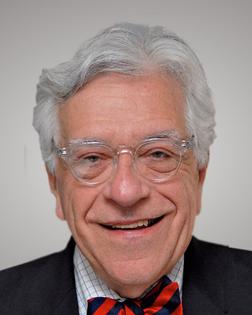The God Squad: The Golden Rule is everywhere
The mission statement of the God Squad is that we know enough about how we are different and not enough yet about how we are all the same. I realize that I have been spending too much time writing about how we are different and not enough about how we are the same so let us begin our exaltation of sameness with the Golden Rule.
Q: You have commented in the past that the Golden Rule is, in some form, a part of every faith but in its classic form “Do unto others as you would have them do unto you.” There is a problem with the Golden Rule. If you are rich and do not need help, you could deny help to others who are poor because you do not need any help from them.
I am Jewish and I was taught the version of the Golden Rule created by Rabbi Hillel which was, “What is hateful to you, do not do to others.” This seems better to me because it is hateful to deny help to the needy, even if you do not need help in return. Do you agree? – (From S).
A: Dear S, I am impressed that you were given such a fine Jewish education. The Hillel version of the Golden Rule (“What is hateful to you do not do to others”) is different but not better or worse than Jesus’ version in Matthew 7:12 and Luke 6:31 (“Do unto others as you would have them do unto you). Both versions teach us different aspects of this fundamental ethical principle. However, the positive version of the Golden Rule is included in the Hebrew Bible, (Leviticus 19:34): "The alien who resides with you shall be to you as the native-born among you; you shall love the alien as yourself, for you were aliens in the land of Egypt: I am the LORD your God. However, Hillel teaches us about the principle of non-malevolence and Jesus teaches us about the principle of benevolence.
Jesus’ version of the Golden Rule teaches the ethical idea of benevolence. We should always try to do good for others and the reason is that we would hope that others would try to do good for us. It tells us to do for others not just avoid harming them. This is a very high version of the Golden Rule but it is not always possible to be benevolent. Giving away all your money to the poor would be a supremely benevolent act but it is not possible because of our obligations to our own families. Jesus’ version is aspirational. It is how we would want to live.
Hillel taught a more limited but more attainable version of the Golden Rule. What is hateful to you, do not do to others” is a teaching of the ethical principle of non-malevolence. Even though we are not always able to help others, we are always and without exception able to avoid harming others. When doctors enter medicine they affirm the Hippocratic Oath which begins “First, do no evil.” We are not always able to do good but we are always able to avoid evil.
The key element that makes the Golden Rule so golden, so good, so ethically inspiring is the idea of reciprocity. Ethics is not just what happens to us. Ethics is what happens to us together. When we recognize that in another person we are seeing the image of God, then it is easier to treat that person with sacred respect. There is no such thing as private ethics. Ethics is what we do together as friends and families and communities and nations and as the world of humanity. The Golden Rule captures that reciprocity that is at the heart of ethics.
So Jesus and Hillel taught us two aspects of the Golden Rule but those teachings only cover Judaism and Christianity. Versions of the positive and negative Golden Rule appear in ancient Egyptian teachings; in the epic sacred scripture of Hinduism, the Mahabarata; in pre-Socratic Greek philosophers like Thales and Plato; the teachings of Zoroastrianism; it is found in the teachings of Buddhism and Jainism, Islam and the Baha’i faith. It is found in Taoism and it is even found in the teachings of Wicca (no it is not “Do unto other witches as you would have them do unto you.” It is actually a beautiful little poem, “Ever mind the rule of three; Three times your acts return to thee; This lesson well thou must learn; Thou only gets what thee dost earn.”
So let us remember the way we are all bound together in the image of God and in our love for each other. There is no other way to make this world a place worthy of God’s love.
(Send ALL QUESTIONS AND COMMENTS to The God Squad via email at godsquadquestion@aol.com. Rabbi Gellman is the author of several books, including “Religion for Dummies,” co-written with Fr. Tom Hartman. Also, the new God Squad podcast is now available.)
©2025 The God Squad. Distributed by Tribune Content Agency, LLC.
(c) 2025 THE GOD SQUAD DISTRIBUTED BY TRIBUNE MEDIA SERVICES, INC.












Comments